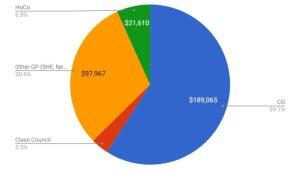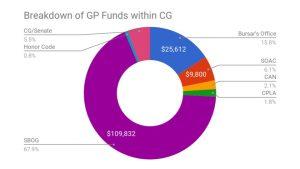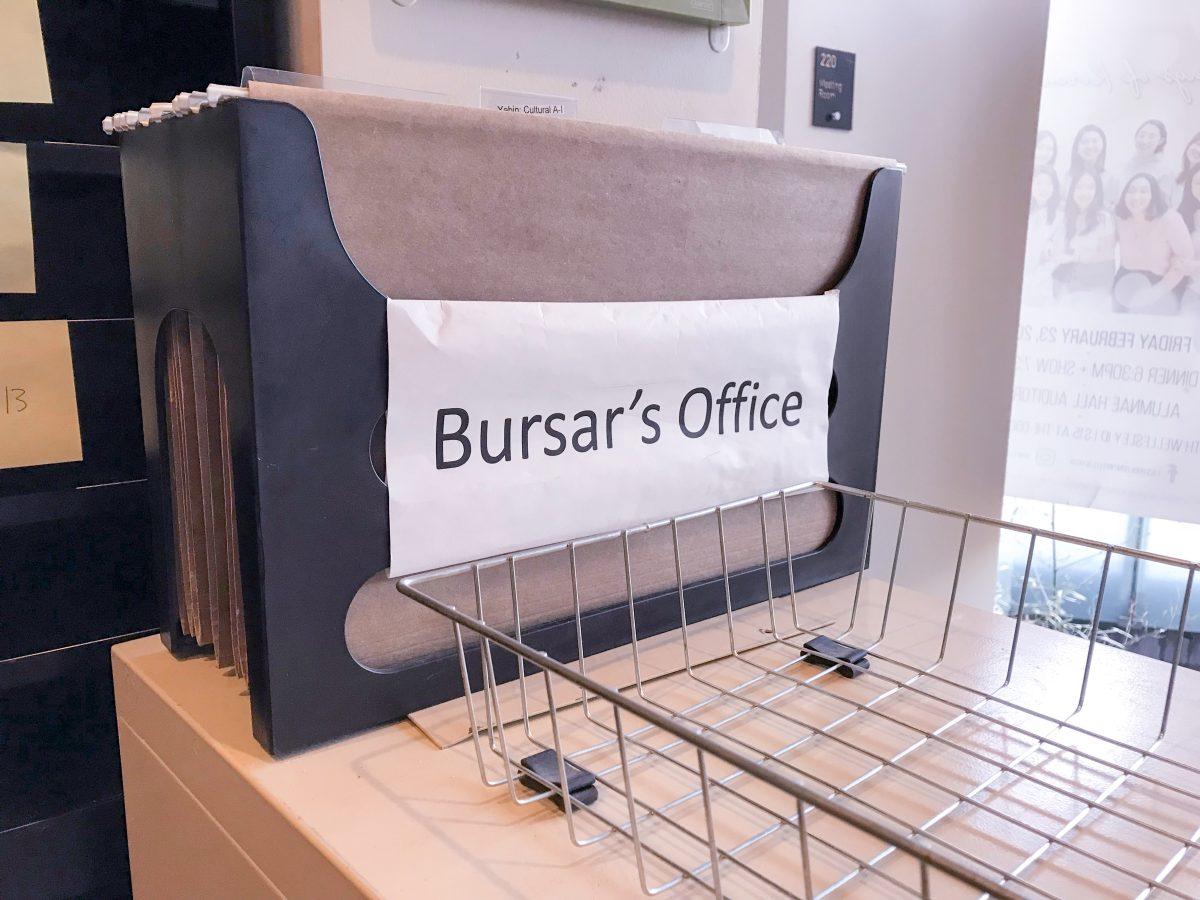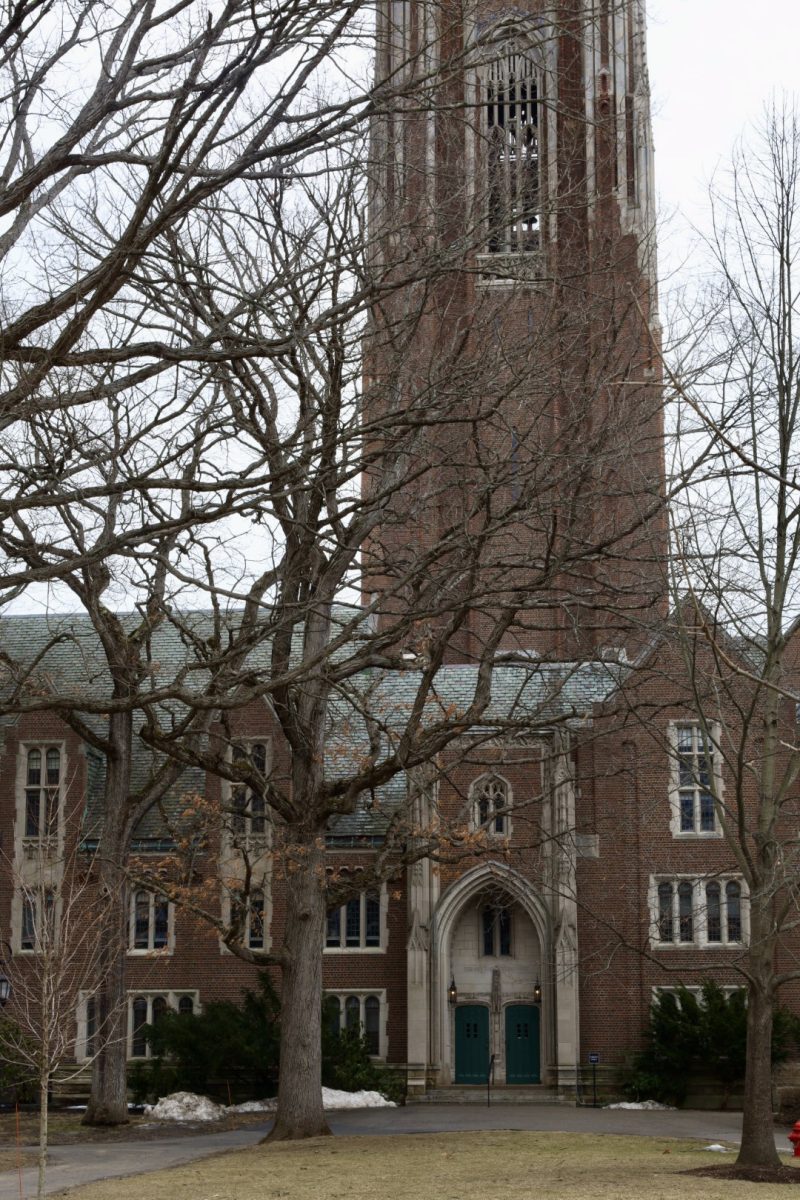At Senate on Feb. 12, the Student Organization Funding Committee (SOFC) presented its Spring 2018 updates, which included extensive rebranding as well as a review of proposed changes for Guaranteed Percentage (GP) organization funding allocation. SOFC, which has moved to change its name to the CG Treasury, is responsible for reviewing and approving applications for all organizations’ event funding. The name change, in conjunction with a website overhaul, is part of a rebranding initiative that aims to efficiently disseminate information, incentivize more students to join the Treasury and facilitate the funding process. The majority of the updates were focused on GP review, which, according to Student Bursar Natalie Jin ’18, is in its current state fiscally inefficient and logistically difficult.
The current GP review process consists of a paper application that must be completed every two years by organizations that serve an essential function at Wellesley, which include College Government, House Councils, Sexual Health Educators, Class Councils, Upstage and others. In order to justify the amount of funding allocated for the next cycle, organizations are expected to keep all receipts that document expenses, without accounting for turnover or lost receipts, which can result in a significant amount of funding lost. According to Jin’s presentation, organizations “must appeal if [they] need more funds and can’t ‘return’ funds until the end of the year. Money is illiquid.”
With the significant increase in the amount of funding that was applied for by all organizations at Wellesley––GP or otherwise––about 14 percent of total allocated funding for GP organizations for the 2017-2018 school year was cut. Jin said, “Given GP orgs requested around 15 percent more, and all GP orgs were thus cut 15 percent means that we should place some emphasis on making sure that all organization have the means to make ends meet.”
The presentation then explained the breakdown of applied funding for GP organizations. Constitutionally, organizations can only apply for 40 percent of funding from the Student Activities Fee fund. In total, the amount applied for was approximately $320,000, while the amount of total funds available was $275,200. With nine year-round bookkeepers, events hosted by the Schneider Board of Governors (SBOG) and coordinators for the Student Organizations and Appointments Committee (SOAC), CG makes up the majority of GP organization funding—about 59.1 percent, or $189,065.

Of the CG organizations, SBOG, the Treasury and SOAC use up the majority of allocated GP funding. SBOG represents 67.9 percent of funding, or $109,832, which comes from all campus-wide planning, including Marathon Monday carnival rides, fall and spring concert artist bookings, Lake Day and other events throughout the year. The Treasury uses about 15.8 percent of funding, or $25,612. This amount is allocated towards paying bookkeepers, handling check requests and reimbursing students for organization’s purchases. SOAC, the third largest in the breakdown, constitutes 6.1 percent of funding, or $9,800. This committee is responsible for all campus-wide organizational oversight and appointments, including the Transportation Advisory Committee (TAC), Elections Committee, Academic Council and more.
Other GP organizations include the Sexual Health Educators (SHEs), Film Society, Upstage, Carillonneurs, WZLY and The Wellesley News. Film Society (24.5 percent), WZLY (23.5 percent) and Carillonneurs (14.3 percent) are the three largest components of this breakdown. Funding for these organizations include equipment, salaries, scripts, licenses and printing.
Jin met with the House Presidents’ Council (HPC) on Feb. 5 to discuss funding for House Councils. The Treasury is moving towards allocating funds on an amount-per-resident basis, rather than as a block sum divided equally amongst the residence halls. This aims to ensure equity across all campus dorms. According to Fiona Chung ’18, house president of Claflin Hall and president of HPC, “The changes the CG Treasury has been making this year are steps in the right direction towards reasonable and fair allocation of money. In particular for House Councils, the GP review changes will create more equity across campus.”
Five days after the presentation at Senate, the Bursar’s Office released the Spring Budgeting Results. Despite approval for events, applications were subject to an approximate 50 percent blanket cut for several reasons, which the announcement breaks down. First, organizations have submitted funding applications for more events, totaling nearly 600. This is up 20 percent from last year and 50 percent from two years ago. Likewise, the amount requested has increased about 60 percent in the last two years. Both the number of events occurring and the amount of funding applied for per event has increased, without any changes to the Student Activities Fee, which was $308 per student for the 2017-2018 year.

Second, many of the cost-cutting measures from previous years have only recently gone into effect. Cuts to club sports, e-board retreat caps to $10 per e-board member and GP review “are all steps toward a more efficient and fair, but also reasonable funding system,” according to the Bursar’s email announcement. The explanation continues to say that “we will not see the ramifications of these changes until 2018-2019, when it will be fully implemented.”
Finally, in an email titled “Spring Budgeting Results,” the Treasury revoked the initial decision to cut mixers, conferences, bonding events and more due to pushback from the community, which arose after the “SOFC Spring Updates” email and during the appeals meeting, citing that “The committee, per our constitution, should not and did not have the right to cut events simply based on what we perceived served ‘on campus ramifications.’”
The budget cuts have been met with dismay by many organizations. Counterpoint Magazine, a monthly journal of campus life that publishes both fiction and non-fiction writing, has begun selling posters in order to finance the printing of their February issue after being notified of a 54 percent budget cut this past weekend. In a statement on behalf of Counterpoint Magazine, Editor-in-Chief Olivia Funderburg ’18 and Treasurer Roz Rea ’19 stress that “More than anything, we want to continue to be able to share important stories and give voice to marginalized students, and we want more than 240 students, or 10 percent of the student body, to be able to read our magazine. We also worry about how this cut affects other publications on campus and other organizations that now cannot perform their sole or primary function.”






